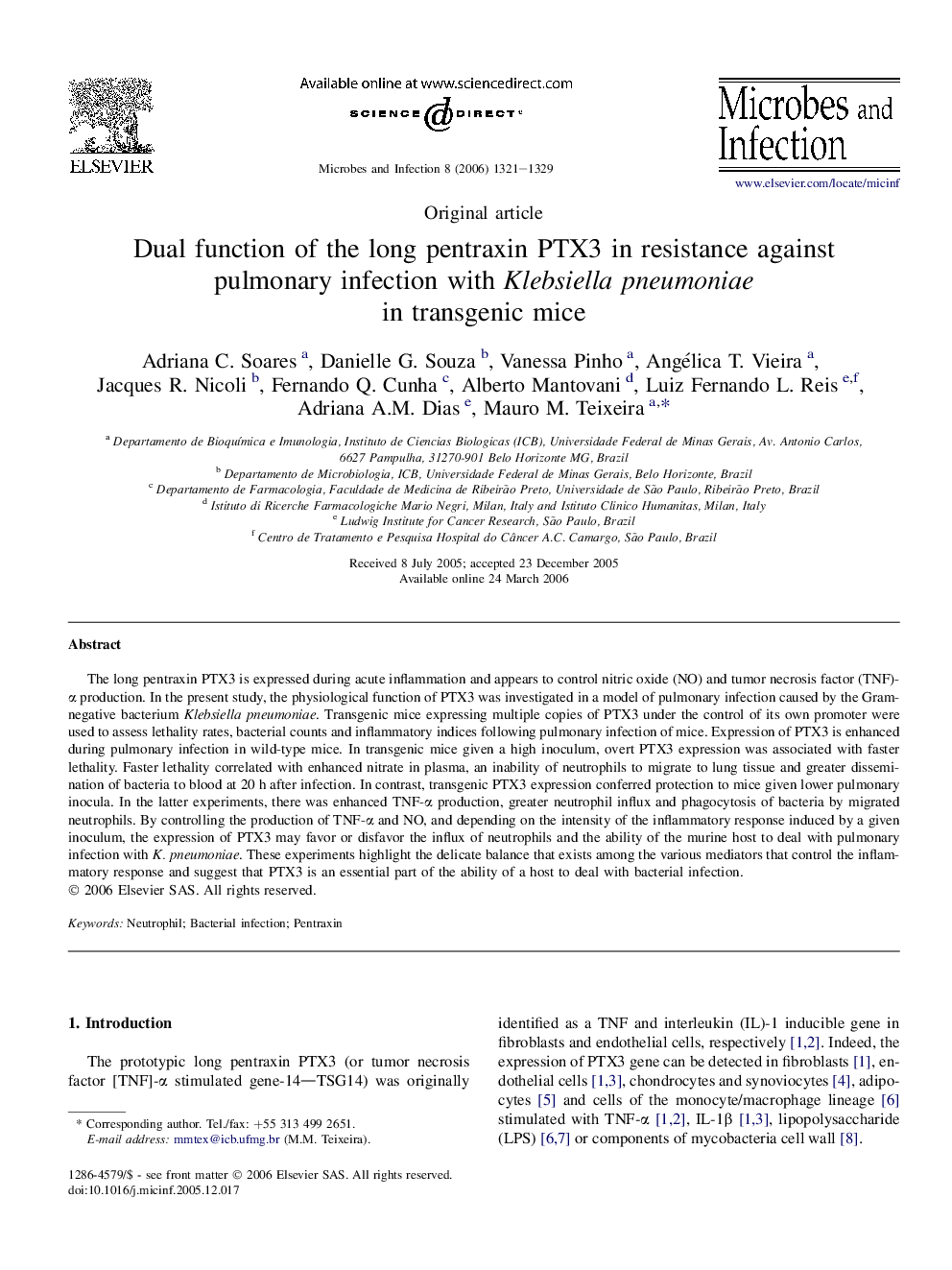| Article ID | Journal | Published Year | Pages | File Type |
|---|---|---|---|---|
| 3415614 | Microbes and Infection | 2006 | 9 Pages |
The long pentraxin PTX3 is expressed during acute inflammation and appears to control nitric oxide (NO) and tumor necrosis factor (TNF)-α production. In the present study, the physiological function of PTX3 was investigated in a model of pulmonary infection caused by the Gram-negative bacterium Klebsiella pneumoniae. Transgenic mice expressing multiple copies of PTX3 under the control of its own promoter were used to assess lethality rates, bacterial counts and inflammatory indices following pulmonary infection of mice. Expression of PTX3 is enhanced during pulmonary infection in wild-type mice. In transgenic mice given a high inoculum, overt PTX3 expression was associated with faster lethality. Faster lethality correlated with enhanced nitrate in plasma, an inability of neutrophils to migrate to lung tissue and greater dissemination of bacteria to blood at 20 h after infection. In contrast, transgenic PTX3 expression conferred protection to mice given lower pulmonary inocula. In the latter experiments, there was enhanced TNF-α production, greater neutrophil influx and phagocytosis of bacteria by migrated neutrophils. By controlling the production of TNF-α and NO, and depending on the intensity of the inflammatory response induced by a given inoculum, the expression of PTX3 may favor or disfavor the influx of neutrophils and the ability of the murine host to deal with pulmonary infection with K. pneumoniae. These experiments highlight the delicate balance that exists among the various mediators that control the inflammatory response and suggest that PTX3 is an essential part of the ability of a host to deal with bacterial infection.
